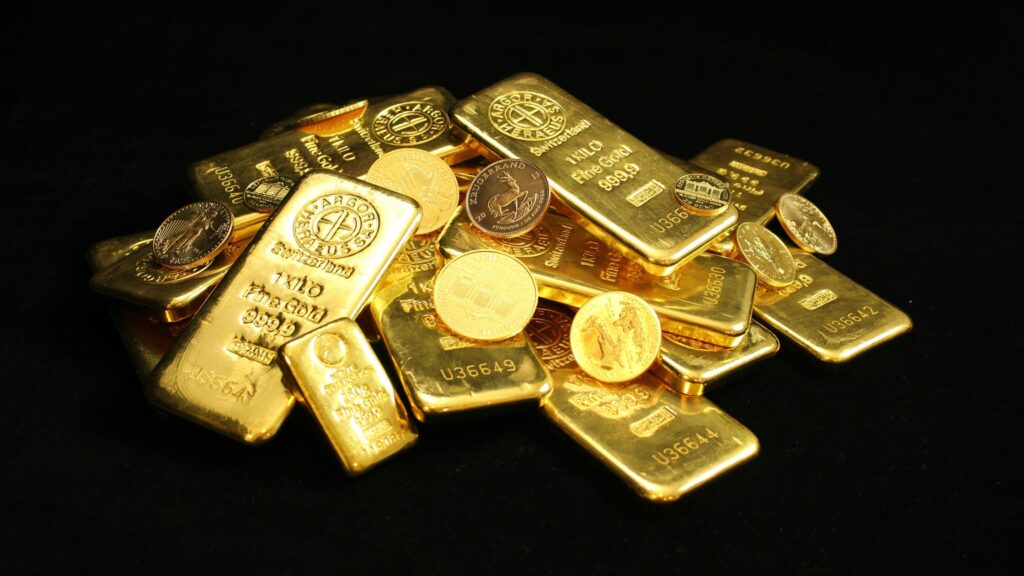Gold is one of the most valuable assets in the whole world. Its beauty, shine, and appearance make it one of the most collectable items in the world. For centuries, Gold has been an integral part of trade, economy, jewellery, and products. However, the cost or rate is constantly increasing with time. There are plenty of reasons, but the most prominent is its availability and mining process. But all this can change as one company claims to be transmuting Mercury into Gold via fusion reactors. So, let’s see whether there is any basis for such claims and if something like this is true, how will it impact the future of Gold?
Turning Mercury into Gold: Alchemy or Science?
Various cultures have stories of magical practices where everyday substances can be turned into Gold. Now, let’s see how much truth was in those stories since we can’t go back in time and look at the events. However, with modern physics, fiction can become reality because now we have a better understanding of elements and their atomic structure.
Nuclear Transmutation is a process by which one element can be converted into another using radioactive decay or reactions. This is not an easy process to replicate in real-world conditions. However, Marathon Fusion, a leading startup in fusion solutions, is working towards a reaction where the end product is Gold derived from the isotope of Mercury. However, they require additional resources to make it scalable for economic viability, and even then, it may not have a significant impact.
The Marathon Fusion Proposal
The U.S.-based startup focuses on fusion and transmutation technologies, aiming to integrate gold products as byproducts of fusion power plants. Coming back to the intricacies of the idea, the company proposed to add Mercury (198) into the reactor’s blanket. During the chain reaction, the company can achieve stable Gold in the chamber.
- ^{198}Hg + neutron → ^{197}Hg (unstable) via (n,2n)
- ^{197}Hg decays (half-life ~64 hours) into ^{197}Au (stable gold)
Their entire claim is based on these two equations inside the fusion reactor. Moreover, the firm also claims that this transmutation reaction can occur without degrading the reactor’s power generation. As a result, the plant, in theory, can have over 2 tons of Gold per gigawatt thermal per year.
Benefit of Marathon Fusion’s Claimed Reaction
If there is a possibility of generating Gold in the fusion reactor, then it can have significant implications and benefits. First of all, Gold is a high-value product and can boost the plant supply. Simultaneously, you’re not compromising the plant’s efficiency. Thus, it can help overcome the stigmata of using nuclear reactors for energy production.
- High-value.
- No interference.
- Fusion adoption.
Physical, Nuclear & Engineering Challenges for Marathon Fusion
For getting positive results for transmutation reactions, neutrons must have sufficient energy. Only then can we achieve reasonable conversion rates. In this way, there is a tradeoff between neutron utilisation for energy and transmutation. Additionally, since Mercury has multiple isotopes, even minor errors in the procedure can result in unwanted or waste products, thereby affecting overall efficiency.
“This new technology approach that Marathon Fusion is developing changes fundamentally how we should think about fusion as an energy source.” –Dr. Per F. Peterson
The newly transmuted Gold may be radioactive initially and might have a cooling period of 17.7 years before it reaches a safe level. This is excessive waiting time for a product that has instant demand in the market. Imagine waiting for over a decade to receive your product, on which you have invested a significant amount of capital. Lastly, there is a challenge of handling the radioactive waste properly.
Efficacy of Nuclear Reactors for Turning Mercury into Gold
Regarding materials and heat, nuclear reactors should be capable of handling intense neutron bombardment and high heat. Therefore, there is a need to develop more efficient reactors that can handle futuristic processes, such as transmutation.
Testing the Theory of Turning Mercury into Gold
The present information is based solely on simulations, as there is no real-world way to test it. Moreover, during real-world testing, numerous factors can impact the reaction. At the same time, there is no reactor where this model can be validated.
How will the Economics and markets react?
If Gold can be produced in fusion reactors, then it will boost the revenue from nuclear energy. At the same time, it can increase the costs of Mercury, which is essential for the process to undergo in the first place. There is, however, a tradeoff similar to any other economic parameter in this process.
- Costs of Mercury.
- Reactor complexity.
- Safety and regulation.
- Decay time of the equation.
What About Gold?
The transmutation of Mercury into Gold will increase the gold supply, especially when it becomes a worldwide procedure. It could depress gold prices and make Gold a secondary option for storing or saving as wealth. Moreover, it can also alter the prices of other elements, which are second to Gold, such as silver.
Regulation, Safety, and Public Perception!
The word, ‘Nuclear’, has a negative sentiment around it. It’s not wrong to say that we need to be strict regarding radioactive materials with proper licensing and dedicated disposal. Additionally, no one has any idea how the public will react to the artificial gold emerging from the nuclear reactor.
- Intellectual property.
- Trade and monopoly risks.
Sustainability of Mercury Resources
The production of Gold from Mercury can lead to the unethical use of Mercury. It poses various environmental risks associated with sourcing and disposal.
Criticism, Scepticism & Counterarguments for Marathon Fusion’s Proposal
The beauty of physics is that many things can be possible in theory, but when it comes to experimentation, they can’t be applied. This is due to the uncertainty in the models, which can render the entire realm of possibilities uncertain.
- Cross-section data.
- Parasitic absorption.
- Neutron transport losses.
That was the problem of physics. Now, regarding economics, due to the long cooling time of the generated Gold, it can delay its monetisation. As a result, people are not compensated for the products they create. Also, there is over-optimism on Gold’s yield, which might not be the case during real experimentation.
- Plasma confinement.
- Net gain.
- Sustained operations.
The Pathway to Progress!
New ideas usually lack the test of time and experimentation. Turning Mercury into Gold using nuclear fusion is one such idea. Although small-scale simulations and reactions yield positive results, reality often differs. That is why there is a need for continual research and development of the field worldwide.
Moreover, even if such experiments are possible, it will still take decades for them to achieve commercial viability. However, it doesn’t mean that there should be no progress; science is about questioning and understanding the very nature, and Marathon Fusion is doing just that! And we need visions like this for progress.
Final Thought on Turning Mercury into Gold
Science can be fascinating in its operations and revelations. Things that we thought of as magic or alchemy are now possible through science. The concept of transmutation and the development of advanced nuclear reactors will undoubtedly play a role in the future.
Currently, there is considerable criticism of using nuclear reactions for energy generation. However, the steps taken by Marathon Fusion are ambitious, challenging, speculative, and need validation. Thus, only through time and thorough experimentation will we decide whether this dream can become a reality in the future.

